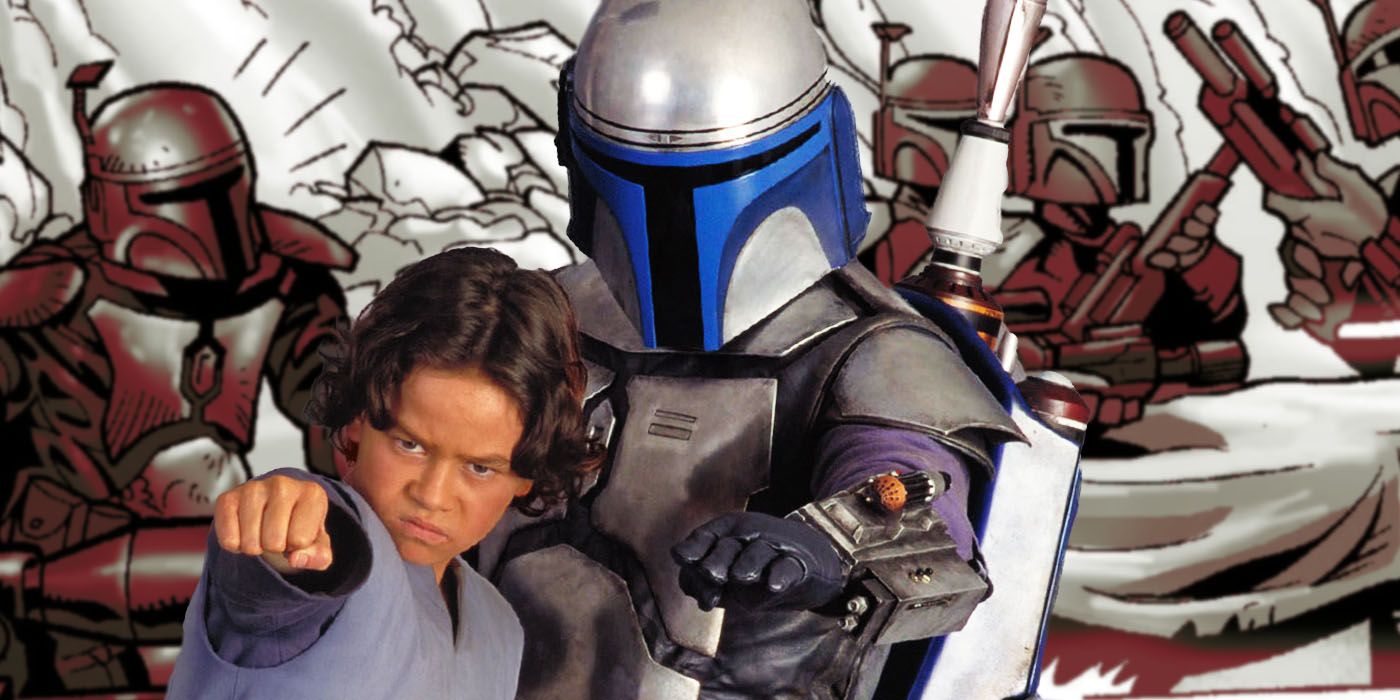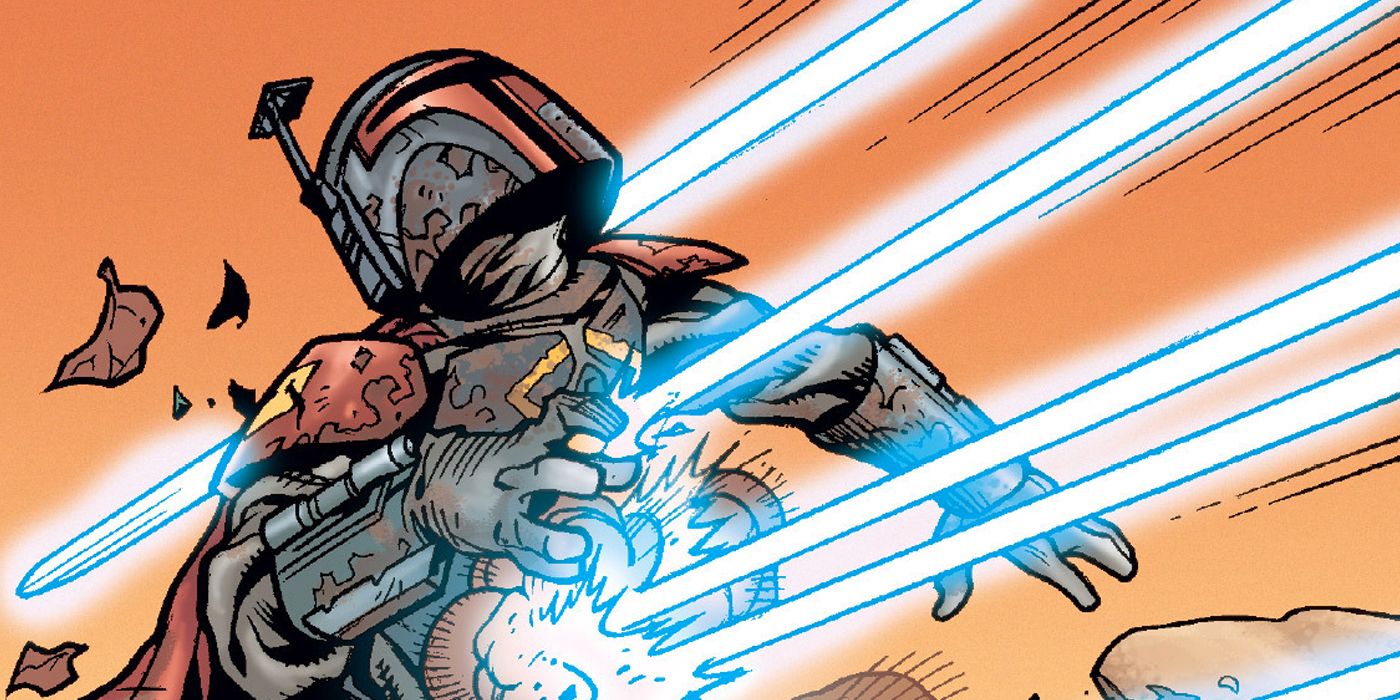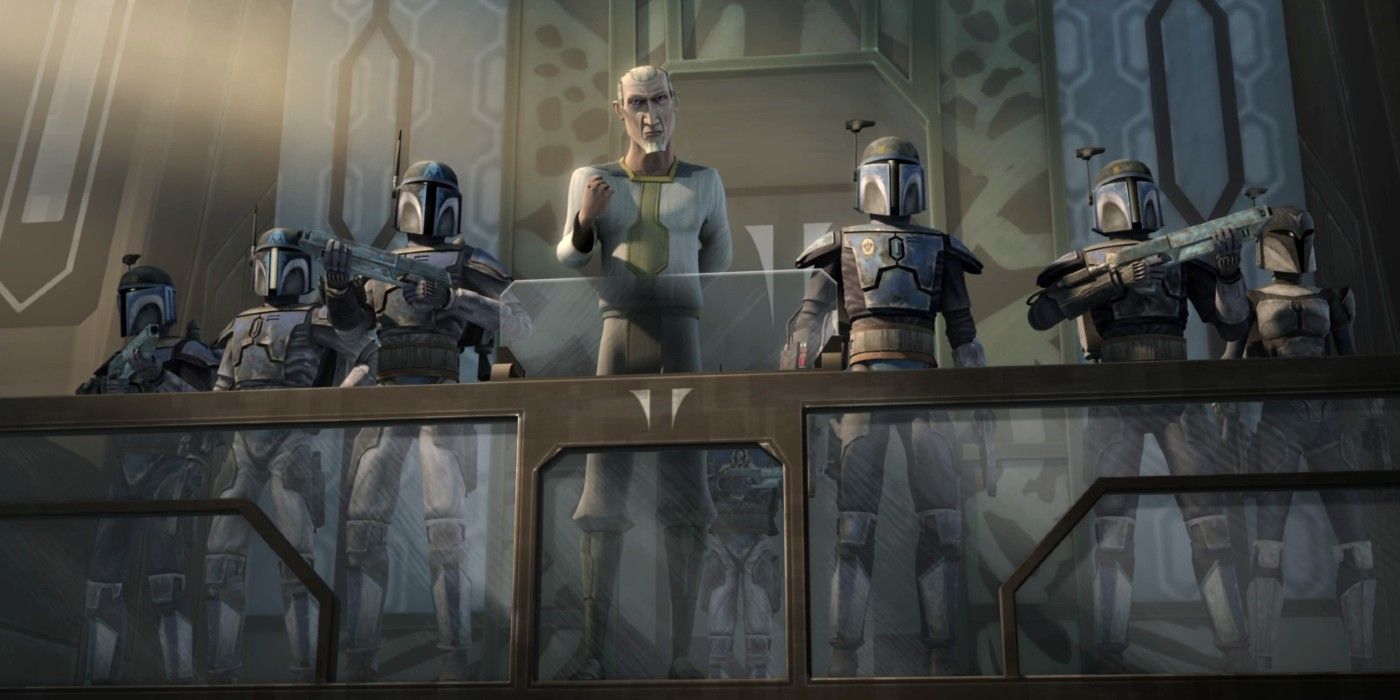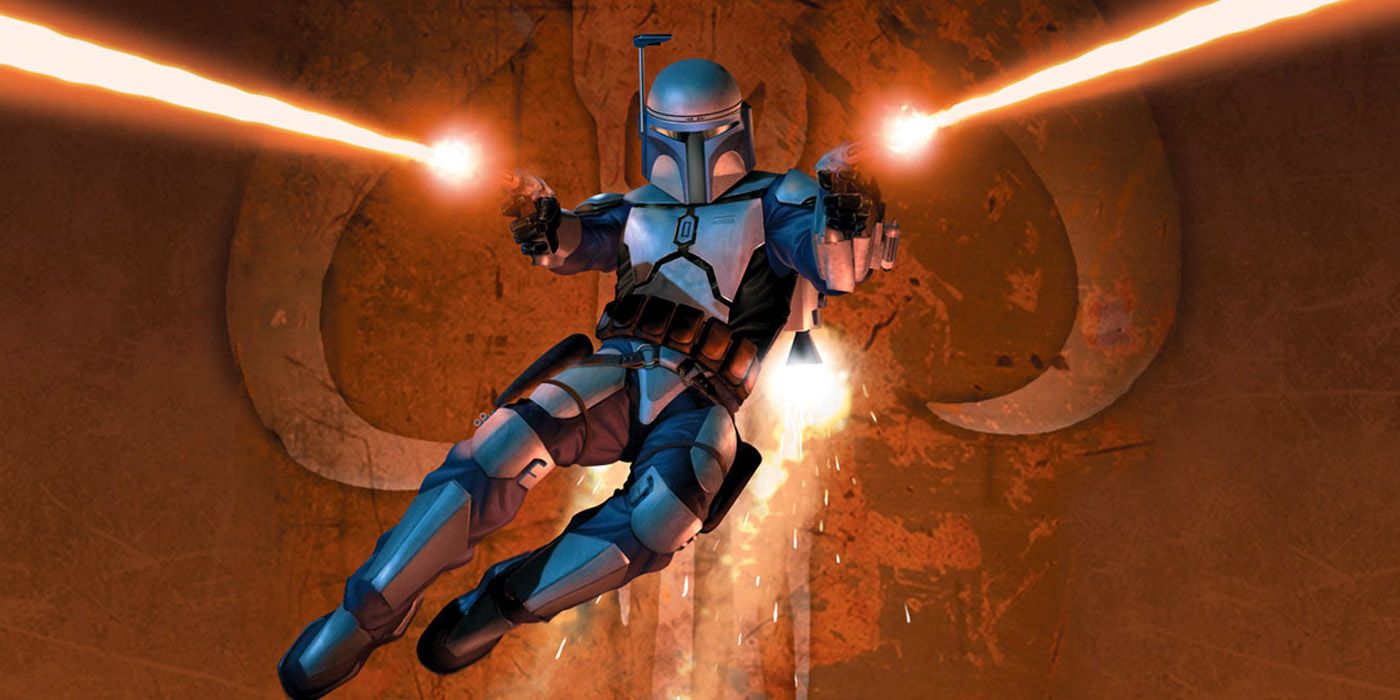
The Mandalorian has finally tapped into some key material from the old Star Wars Extended Universe in regards to Boba Fett, Jango Fett, their heritage, and their connection to the Mandalorian Civil Wars. While Jango Fett was a native Mandalorian in pre-Disney Canon, his official status has been disputed since much of that fiction was relegated to the “Legends” timeline. After some new reveals in The Mandalorian, it seems a good amount of the character’s old lore is being recanonized.
The history of Mandalore is complex, extensive, and fraught with violence. In the era of the Old Republic, the great Mandalorian warriors waged numerous battles against the Jedi Order in a bid for galactic conquest. Despite centuries of feared power and a longstanding tradition of martial skill, the race slowly declined through the effects of so much fighting. The surface of Mandalore itself became barren and scarred, and the race that once rivaled the Republic fell into a scarred and fragmented image of its former self. It was in those days of decline that the Mandalorians began fighting amongst themselves.
While there are certainly differences between the Legends timeline and the new canon, much of Mandalore’s history remains the same. And now, thanks to The Mandalorian, Jango Fett is once again a core piece of that history. Given the heightened canonical significance of Mandalore established by the show, it’s nice to see the Fetts reestablished as one of race’s most important familiars (and certainly one of the most popular). But to fully understand the role Jango – and by extension Boba – play in Mandalore’s history of conflict, it is first necessary to understand that history and how it has evolved.

In Star Wars Legends, Mandalore’s decline transpired much the same as it does in the new canon. Centuries of conflict led to a fragmented and fragile state, until 60 BBY, when a respected warrior named Jaster Mereel ascended to the title of Mandalore – the de facto leader of the various clans. Mereel proclaimed a new code for the Mandalorians, by which any adhering to the traditional ways of martial skill and combat should become soldiers and mercenaries of the highest ability and honor. This code was intended to put a stop to the constant raiding and savage violence that many of the race had fallen to.
Not everyone agreed with Mereel’s new order, however. Another sect called the New Mandalorians preferred a more strictly pacifist route, while a third order known as the Death Watch believed Mandalorians should embrace their old ways of raiding, pillaging, and conquering. Eventually, Mereel’s “True Mandalorians” and the Death Watch came into direct conflict, sparking a civil war that waged for years.
Mandalore survived the conflict - though Mereel, the True Mandalorians, and most of Death Watch all perished in the fighting. Many of the race’s strongest clans effectively died out, and the planet’s time as a military power was over, at least temporarily. Those who remained loyal to the old warrior code were scattered across the stars, and the past might of Mandalore became little more than a galactic legend.

The new Star Wars canon keeps most of the same beats from the Legends storyline, minus many of the details. In the same way as before, Mandalore declined from centuries of conflict, leading to a fragile political climate. The peaceful New Mandalorians, led by the young, idealistic Duchess Satine Kryze, opposed those who swore allegiance to the old warrior ways, leading to a conflict that devastated the planet’s remaining landscape and population.
When the clans had fought themselves into oblivion and Satine was able to come out of hiding and retake control of the planet, she declared Mandalore officially demilitarized, exiling any who refused to give up the ancient code to the moon of Concordia. There the martial loyalists were believed to have died out, though secretly they reformed and gathered strength under the banner of Death Watch. Throughout the Clone Wars, this renegade faction continued scheming to retake Mandalore, succeeding occasionally, but never for long.
These events generally mirror those from the Extended Universe, but some specifics have been left in non-canon territory. For instance, the True Mandalorians have not officially been part of the new canon’s civil wars, nor has Jaster Mereel. That is, until now.

In the Legends timeline, Jango Fett was a key figure in the Mandalorian Civil War. Orphaned after his parents were killed by members of the Death Watch, Jango was taken in by Jaster Mereel and became a one of the True Mandalorians’ most skilled and respected fighters. When Mereel was killed during the war, Jango took his place as the new Mandalore, leading the True Mandalorians through the end of the fighting, which he barely survived himself.
In the end, Jango was sold into slavery by agents of Death Watch after his own faction had fallen. After years in bondage, he finally escaped, reclaimed his armor, and killed the leader of the Death Watch who’d been the cause of so much of his pain. Fett abandoned his heritage afterward, becoming a bounty hunter and eventually standing in as the model for the Grand Army of the Republic.
In the new canon, Jango’s direct connection to the war remained unknown until a reference by his son Boba in The Mandalorian. Boba mentions that his father was a foundling, and the chain code he shows Din at the end of “The Tragedy” includes a reference to Jaster Mereel. This suggests that Jango’s EU storyline is being made at least partially canon again. It’s unclear whether either Mereel or Fett ever became Mandalore in the new canon, but it seems that at the very least they fought together during the war.
Does that mean the True Mandalorians exist in the new canon? Maybe. It’s also possible that Jango was affiliated with the militant faction that later became Death Watch. With Boba Fett now established as a more central character in The Mandalorian and Mandalore’s own history being thrown back into the spotlight, it seems like more reveals are sure to come.
from ScreenRant - Feed https://ift.tt/37RdEP9


0 Comments